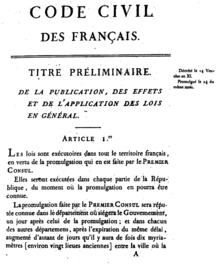Cross posted from The Stars Hollow Gazette
Last week the House of Representatives killed a proposal that would have raised the minimum wage tp $10.10 an hour over two years. It failed with not one Republican vote in favor and six Democrats voting against it, as well. In an article for the Los Angeles Times, David Horsey says that while both Democratic and Republican politicians express concern for the middle class, they have failed miserably to address the growing class divide in the Unites States.
As politicians in Washington slam one another over competing budget priorities, most avoid facing up to the disturbing question behind all the numbers: Is the American Dream temporarily stalled or permanently kaput? [..]
This is not the country we like to think we are and it is not the country our political leaders are willing to admit they have helped create. Thirty years of catering to Wall Street, big business and the U.S. Chamber of Commerce has not boosted the American economy the way it was meant to do. Yes, the financial industry and giant corporations are awash in wealth, but they are not hiring more workers, they are not paying better pay, they are not enhancing benefits, they are not sharing the wealth. On the contrary, the typical American is working much harder for worse compensation. He or she is paying a bigger share of the healthcare bill and has no pension plan waiting at the end of the line.
This is an all-American crisis bigger than the deficit or the war on terrorism, but no one seems ready to take it on.
Mr. Horsey notes a rundown of the facts about today’s American economy by economics columnist Jon Talton:
• Worker productivity has increased nearly 23% since 2000, but hourly wages rose a pitiful 0.5% in that period.
• Taking a longer view back to 1973, productivity is up 80% between now and then, but pay is up only 11%.
• People at the bottom of the wage scale are earning less now than similar workers in 1979.
• Employees in the middle of the wage scale are getting 6% more than in 1979, but all that increase happened in the 1990s.
• High earners, meanwhile, are making 37% more than back in the 1970s, and the much-talked-about folks in the top 1% have enjoyed a 131% increase in earnings.
In his article, Mr. Talton furthers concludes:
This reality is at complete odds of our self-image as the Land of Opportunity. It is also a change from a previous America. We’ve been losing ground. Some reasons are obvious, others are complex. Many are familiar to readers of this column, and a few are the subject of sharp debate.
Globalization, offshoring and technology have decimated the old blue-collar middle class. The economy has shifted to service jobs that not only tend to pay less but are increasingly part time and temporary. [..]
Whatever the causes, little is being done to correct our trajectory into historic high inequality that is greater than other advanced nations.
Things may have to get worse before change happens. One thing is clear: Our situation is unsustainable and un-American.
Richard Wolff on Fighting for Economic Justice and Fair Wages
Economist Richard Wolff joins Bill to shine light on the disaster left behind in capitalism’s wake, and to discuss the fight for economic justice, including a fair minimum wage. A Professor of Economics Emeritus at the University of Massachusetts, and currently Visiting Professor in the Graduate Program in International Affairs of the New School. [..]
“We have this disparity getting wider and wider between those for whom capitalism continues to deliver the goods by all means, [and] a growing majority in this society facing harder and harder times,” Wolff tells Bill. “And that’s what provokes some of us to begin to say it’s a systemic problem.”


 On this day in 1804,
On this day in 1804, 
